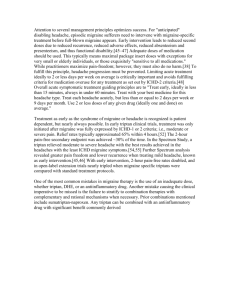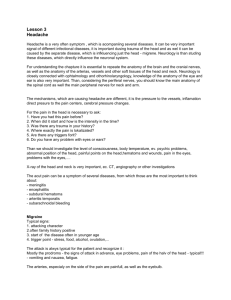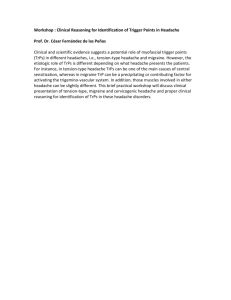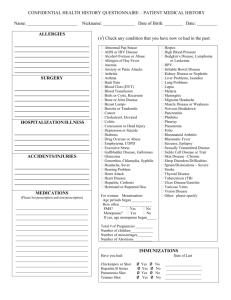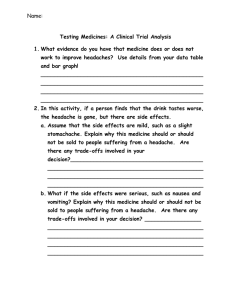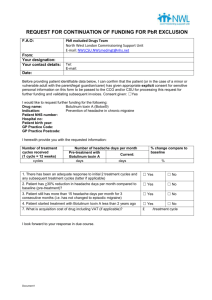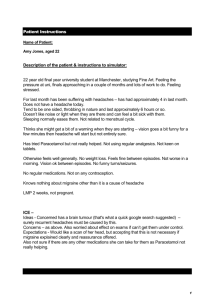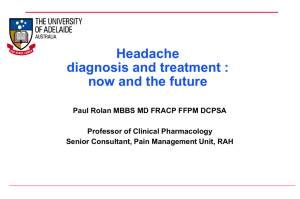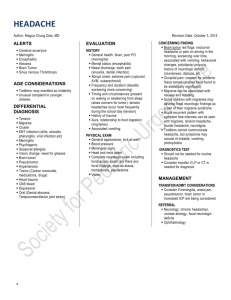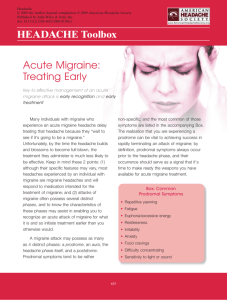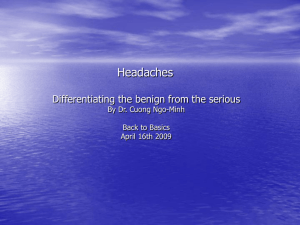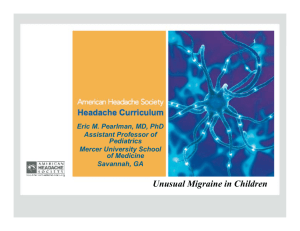Headache Test
advertisement
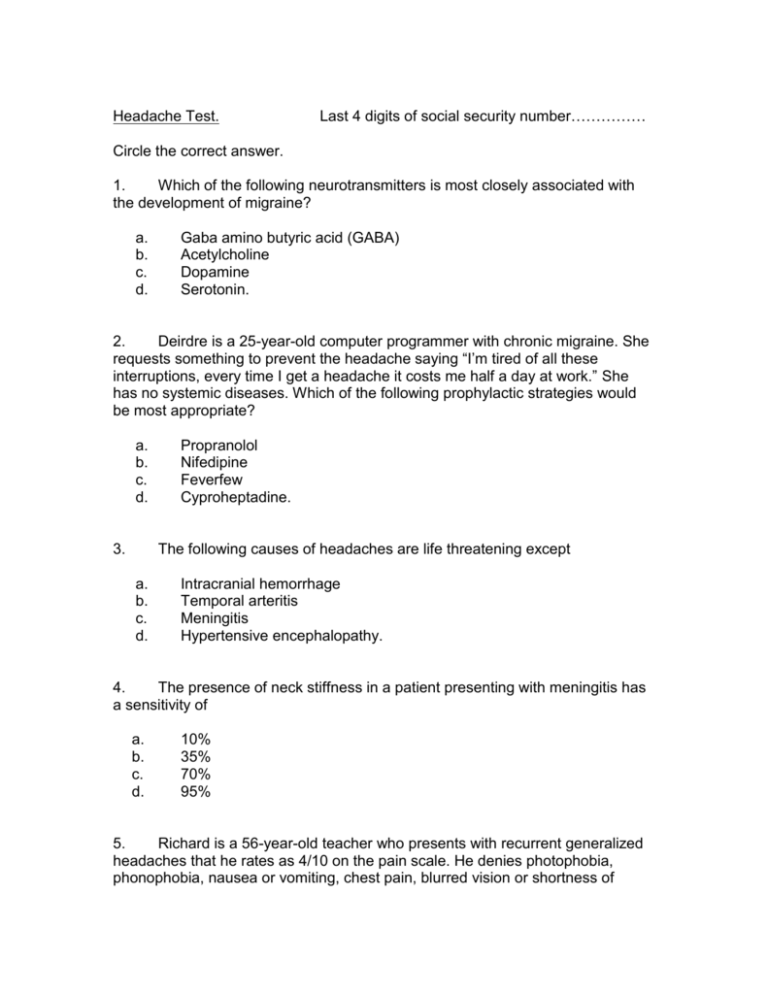
Headache Test. Last 4 digits of social security number…………… Circle the correct answer. 1. Which of the following neurotransmitters is most closely associated with the development of migraine? a. b. c. d. Gaba amino butyric acid (GABA) Acetylcholine Dopamine Serotonin. 2. Deirdre is a 25-year-old computer programmer with chronic migraine. She requests something to prevent the headache saying “I’m tired of all these interruptions, every time I get a headache it costs me half a day at work.” She has no systemic diseases. Which of the following prophylactic strategies would be most appropriate? a. b. c. d. 3. Propranolol Nifedipine Feverfew Cyproheptadine. The following causes of headaches are life threatening except a. b. c. d. Intracranial hemorrhage Temporal arteritis Meningitis Hypertensive encephalopathy. 4. The presence of neck stiffness in a patient presenting with meningitis has a sensitivity of a. b. c. d. 10% 35% 70% 95% 5. Richard is a 56-year-old teacher who presents with recurrent generalized headaches that he rates as 4/10 on the pain scale. He denies photophobia, phonophobia, nausea or vomiting, chest pain, blurred vision or shortness of breath. He has no other symptoms. On examination he is afebrile with a blood pressure of 170/95 and no neck stiffness. The rest of the examination including a full neurological examination is normal. What is the most likely cause of his headache? a. b. c. d. Hypertensive encephalopathy Migraine Tension type headache Meningitis 6. Mary has been diagnosed with chronic tension type headaches. To how many days a week would you advise her to restrict her medication use? a. b. c. d. 7. 2 days a week 4 days a week 6 days a week Daily use is OK Which of the following is a contraindication to triptan therapy a. b. c. d. Contraceptive pill Ischemic heart disease Controlled hypertension. Migraine with aura. 8. Which of the following medications have been associated with rebound headaches? a. b. c. d. Triptans only. Narcotics and NSAIDs only. Triptans, narcotics and NSAIDs Narcotics only. 9. Typical features of tension-type headaches include all of the following except? A. B. C. D. E. Bilateral location Mild or moderate pain described as tightness, pressure, or dull ache Pain often radiating to posterior neck muscles Headache accompanied by visual disturbances Pain lasting from 30 minutes to several days 10. Which one of the following is considered a “red flag” in an adult with a headache? A. B. C. D. E. Slow onset Onset before age 50 Short term nausea and vomiting Subsequent to head trauma Exacerbation by climbing stairs 11. Which of the following is true in relation to migraine headache? A. B. C. D. E. Men are more likely to have migraine than women Most people with migraine are not diagnosed Migraine is almost always associated with aura symptoms Lack of throbbing quality of pain rules out the diagnosis of migraine Lack of a one-sided headache rules out the diagnosis of migraine. 12. Migraine with aura has which one of the following features? A. B. C. D. E. Ipsilateral lacrimation or nasal congestion Irreversible aural symptoms indicating focal cerebrocortical or brain-stem dysfunction Reversible aura symptoms and headache with a pulsatile quality Pressing or tightening quality Pressing or tightening quality Answer the following questions by circling true or false. 1. The majority of patients with a subarachnoid hemorrhage have neck stiffness. True/False 2. The diagnosis of meningitis may effectively be eliminated if the patient has absence of fever, no neck stiffness and no change in mental status. True/False 3. Kernigs and Brudzinski signs have a low sensitivity but a high specificity. True/False 4. The resolution of a headache with ketoralac (an NSAID) rules out that the cause of the headache is an intracranial bleed. True/False 5. For a headache to be diagnosed as a migraine it must be associated with nausea or vomiting. True/False 6. A tension headache is increased by physical activity. True/False 7. In the treatment of migraine steroids are more likely to be successful than opiates True/False 8. A headache that increases with valsalva is associated with an abnormality found on neuroimaging. True/False
